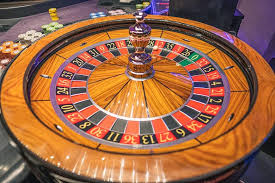A recent report by the national trade association for the industry shows that the casino gaming sector in the United States generates about $329 billion in economic activity annually.
The economic effect of the gaming sector was up 26% over 2017,—before the COVID-19 pandemic—according to a survey released by the American Gaming Association on Monday.
1.8 million people are employed by commercial and tribal casinos, including 700,000 in the casinos or businesses that serve them, which is roughly the same as in 2017. According to the research, such positions generated $104 billion in compensation nationwide, an increase of 40% from 2017.
The industry contributed $52.7 billion in taxes to the federal, state, and municipal governments last year, a 29% increase over 2017.
The study, which presented 2017 data, was the association’s first of its kind to be published after 2018.
The statistics, according to the association’s president and chief executive officer, Bill Miller, demonstrate the casino industry’s “resilience and continued strength” since the pandemic first began.
“Remember where we were a few years ago with nearly 1,000 casinos? Almost all of them closed,” he remarked. “The industry is currently experiencing record profits.”
Miller said the group would use the survey’s findings to make its case to politicians in support of gaming industry aims, such as a government crackdown on unregistered gambling establishments.
This year has been the best ever for the American casino industry in terms of winnings from gamblers. It is on track to surpass the $60 billion in gambling winnings from the previous year.
David Schwartz, a gambling historian at the University of Nevada, Las Vegas, stated, “I think it speaks to the continuing popularity of casino gambling in the United States.” “Casinos continue to be significant drivers of economic activity despite some economic headwinds.”
Casino winnings are only a small portion of the overall economic impact that these establishments have on the country, according to Jane Bokunewicz, director of the Lloyd Levenson Institute at Stockton University in New Jersey, which researches the Atlantic City gambling market.
She stated that casinos frequently serve as the region’s main employers and make significant promises to pay and receive benefits. “Casinos’ employees use their salaries and benefits to buy additional goods and services, creating a secondary economic impact.”
According to Bokunewicz, casinos spend a lot of money on maintenance, meals, linen, hotel amenities, laundry services, and other running expenses. For building and continuing capital improvements, they also use local merchants and contractors.
In addition to typical casino games, sports betting, and online gambling, the survey looked at money that gamblers won or spent at non-gambling casino establishments, including restaurants and shops. Capital expenditure, including the construction and opening of new casinos or repairs to existing ones, as well as spending by producers of gambling equipment, including slot machines, were also questioned.
Both casino supply chain spending and employee spending on non-gambling items were included. Additionally, it includes $13.5 billion in “catalytic” spending by casino visitors outside of casinos on items like travel to and from a casino resort and money spent at restaurants that are not affiliated with casinos.
Almost 332,000 people worked in commercial casinos last year, earning $16.3 billion in pay and benefits, and almost 265,000 people worked in tribal casinos, earning $8 billion in wages and benefits. Additionally, there were more than 23,000 jobs at makers of gambling equipment and nearly 89,000 positions at companies that provide services to casino visitors while they are on trips or work on casino construction and renovations.
Last year, over 17% of casino revenue came from non-gambling sources, including sales of food and drink, hotel rooms, and other goods.


















